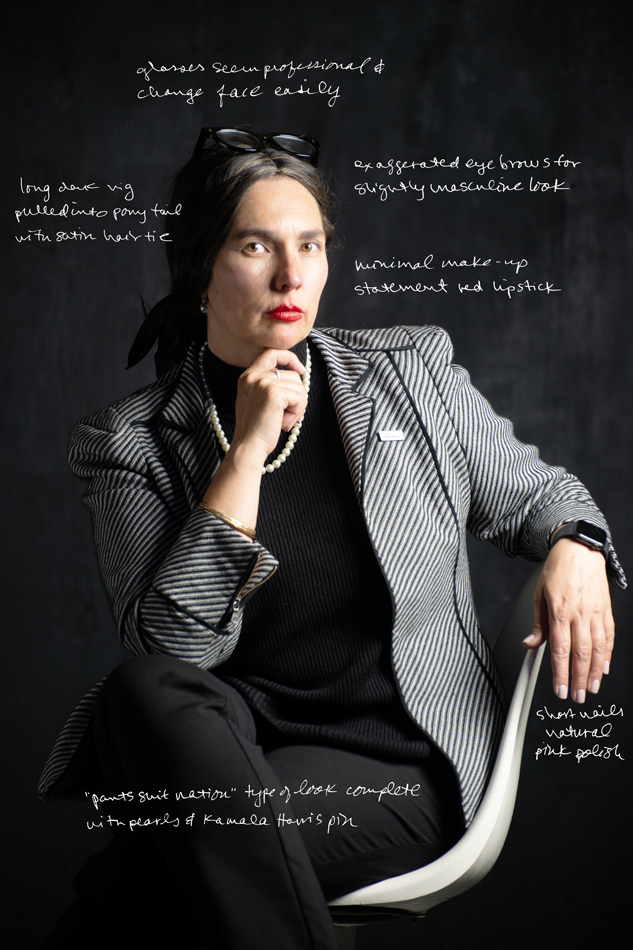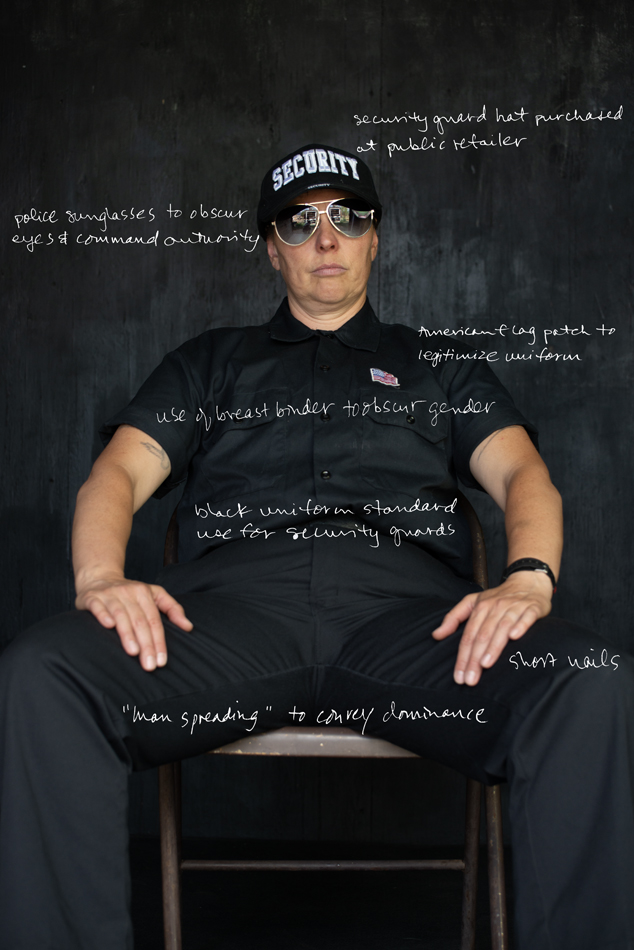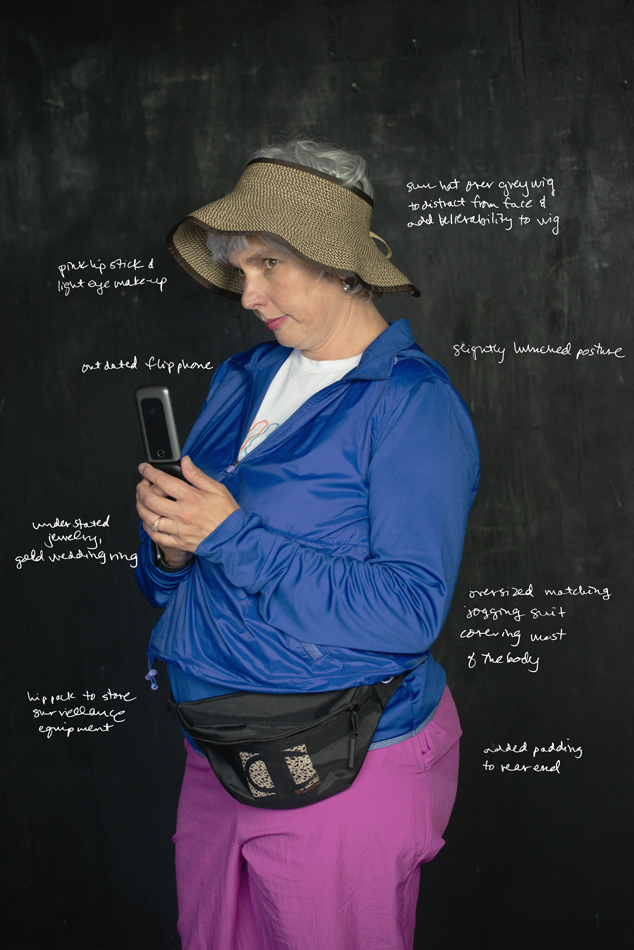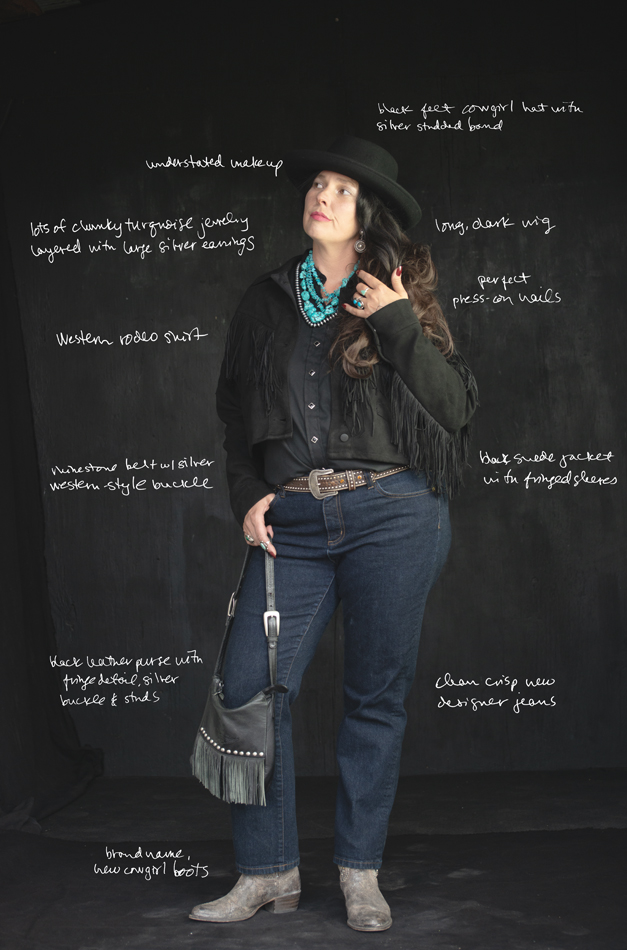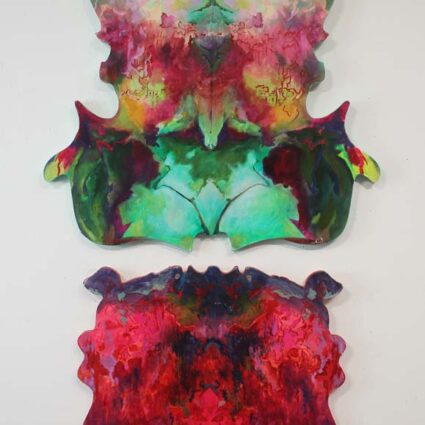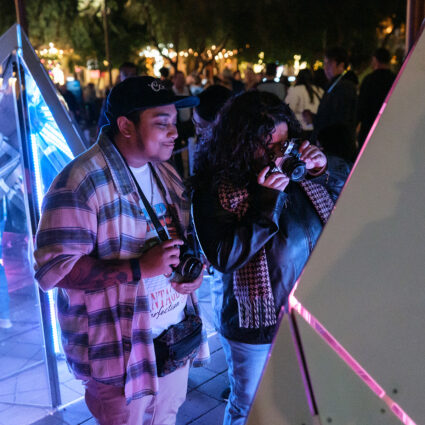Albuquerque-based artist jesse lovell’s practice has expanded over the years to include P.I. work, living somewhere between caricature and sousveillance.
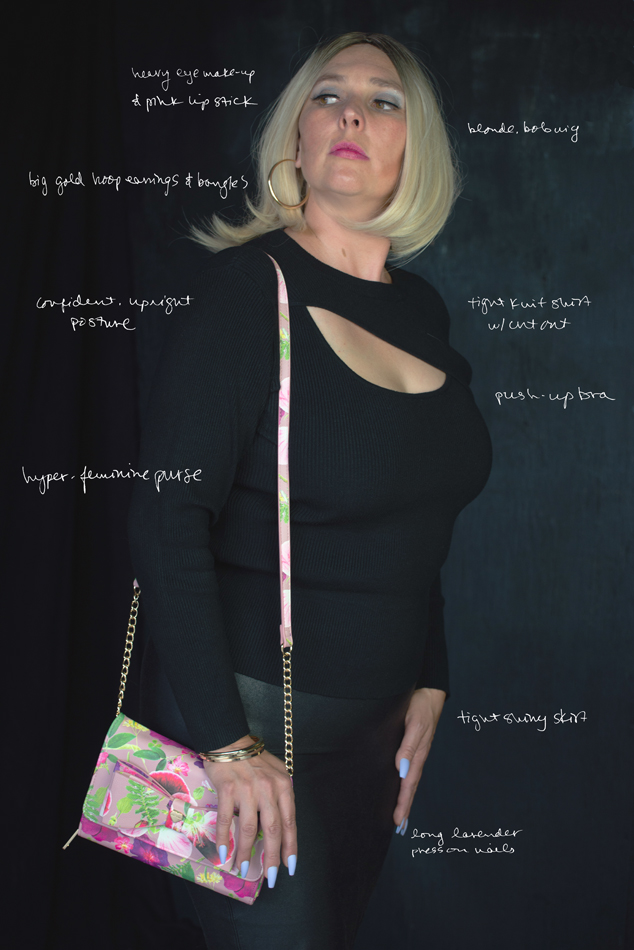
Albuquerque, New Mexico | patreon.com/jessamynlovell | @filmnotdead
We’ve all seen at least one movie in which a character dons a disguise as part of a larger scheme, maybe an escape plan. Could be just a wig and sunglasses, or perhaps a stolen uniform complete with name tag. Whatever the chosen look, the most successful (and arguably the riskiest) is the one that makes it possible to hide in plain sight.
“By day, I am a parent, artist, and educator while most nights I assume my role as a licensed private investigator, out on surveillance or conducting research,” says Albuquerque-based jesse lovell (who uses they/them pronouns), whose artistic practice has expanded over the years to include P.I. work as an integral part of “developing creative ways to subvert oppression, surveillance, privacy, and identity.”
Lovell’s devotion to the art of private investigation began in the early aughts when someone stole their identity, an experience they chronicled in the project Dear Erin Hart (2011-14). Lovell hired a P.I. to find the thief, whom they then followed and photographed, building a portrait of the artist more so than the thief. Soon after, lovell completed the more than 6,000 hours required to become a licensed P.I., using their skills as a trained photographer to make visible what fixation looks like.
Practiced Disguises (2021-25), lovell’s most recent series of photographs, lives somewhere between caricature and sousveillance, which the artist explains as “necessary in my efforts to obscure my own identity to secure different types of information.”
For example, “Laura” presents as a professional forty-something, ready to chat you up about the latest stock fluctuations, all the while gathering intel on your finances. “Laurel” just wants to pray for you (once you confess your sins, in detail, of course). The motel maid, construction worker, and tourist guises are too utilitarian—too inconsequential—to be noticed.
Having trained with private investigators, behavioral experts, and performance artists, lovell moves in and out of “character” with ease. But there’s something in the stitching together of identities that causes stereotypes to fall apart, which makes the act of truly becoming oneself all the more fascinating.
